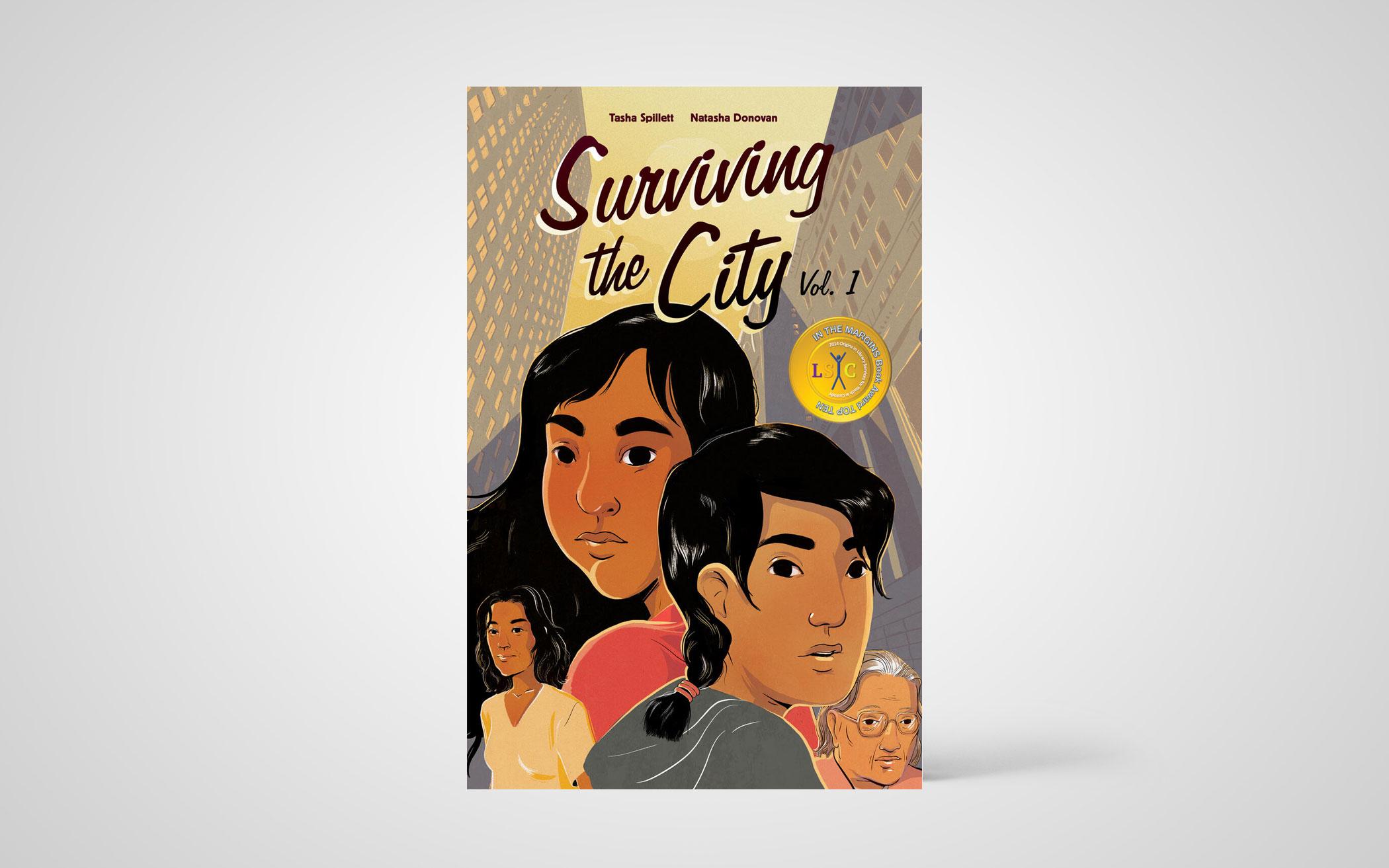I found this young adult graphic novel on a table of current bestsellers at Winnipeg’s iconic McNally Robinson Bookstore. Like the two main characters, Miikwan and Dez, I spent much of my teenage years in urban Winnipeg on the bus, waiting for the bus, and wandering around downtown malls and other spaces with my friends or alone. I could feel their vulnerability as predatory men leered at them or even offered them rides, and I could also feel their rising strength as they learned to navigate this world with savvy and courage. I found it compelling that The Forks, which didn’t exist as it does now—with retail shops and restaurants on the Red River—when I was a teen, but has existed for thousands of years as a gathering place for Indigenous peoples—is a favorite spot for these girls just as it is for me now.
Despite these similarities, Miikwan, an Anishinaabe, and Dez, who is Inninew, have very different lived experiences from me, a white person who grew up in the same city. Statistically, Indigenous women and girls have a higher rate of going missing and being murdered, and this haunting graphic novel puts the spotlight on Murdered and Missing Indigenous Women and Girls (MMIWG).
“Haunting” feels like the right word here, because not only does the reader learn about the global problem of MMIWG, but the illustrations often depict the spirits of these women as companions to Miikwan and Dez. More eerie by far are the depictions of the ghoulish spirits of predators lurking around the girls. Read through a Christian worldview, it’s easy to imagine the spirits as angelic or demonic.
As these best friends survive the city, they also act like teenagers sharing life together. Readers learn about the yearlong Berry Fast, in which girls entering womanhood abstain from berries all year and keep each other strong. They lean on one another as they grieve the losses in their lives, from Miikwan’s murdered mother to Dez’s precarious living situation with her beloved kokum, her grandmother in declining health.
Though it sounds heavy and scary, the information is presented in a way that teaches young teen readers about weighty issues in a way that is accessible and age appropriate. At the end of the book, there are materials with a bit of background on MMIWG and ideas for further study and reading. (HighWater Press)
About the Author
Lorilee Craker, a native of Winnipeg, Man., lives in Grand Rapids, Mich. The author of 16 books, she is the Mixed Media editor of The Banner. Her latest book is called Eat Like a Heroine: Nourish and Flourish With Bookish Stars From Anne of Green Gables to Zora Neale Hurston.

